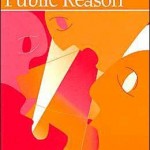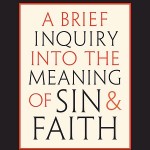Note: This is the rough start to a larger treatment of this issue.
In the works of Rawls, religion, as a concept is largely conceptualized as mainstream Western religion. This includes both Protestant and Catholic strands of Christianity, Judaism, and Islam. In particular, I think that Rawls primarily has mainline Protestantism, the faith of his youth, in mind when he thinks of people of faith accepting an overlapping consensus about a political conception of justice.
The moral assumptions of mainline Protestantism align well with the general moral assumptions of Kantian ethics. This does not mean that they align on matters of epistemology or metaphysics, but they share a certain enlightenment sensibility that politically makes them amicable to each other within the public sphere.
One thing that I will need to address is whether this has a negative impact on the later theory of Rawls.
In one way, I do not think it does. Rawls, while writing from a mainline Protestant perspective, writes his thesis from a rather orthodox Protestant point of view (2010). In particular, his very dismissive of the Gnostics and other view that he see as more spiritualist than traditionally Christian.
However, I also think that Rawls may not fully understand the extent to which fundamentalist forms of Christianity or Islam might object to his conception of justice. They might not be able to accept liberal democracy as anything but a modus vivendi.
Now, I agree with Rawls that a a pretty wide range of Christians and others can have a principled commitment to liberal democracy. Yet, I also think that the segment of Western society which adheres to an unreasonable comprehensive religious (and secular) doctrines may be much larger than Rawls assumes in his writings. This optimism is something that draws me to his theory, but is it a flaw? (I will return to this an some further definitions of these terms soon)
One thing that Rawls’ conceptualization does do is leave out Eastern religions and non-Abrahamic religions. He does not exclude them. I just think that like many Western thinkers (both religious and secular) they fall outside of his focus. In many ways, the Rawlsian theory of justice is a theory for Western democracies. However, I think that political liberalism can fit a range of religious beliefs and Eastern religions may have a much easier time embracing the overlapping consensus of liberal democracy because of a very different approach to metaphysics, particularly when it comes to the issue of salvation.











